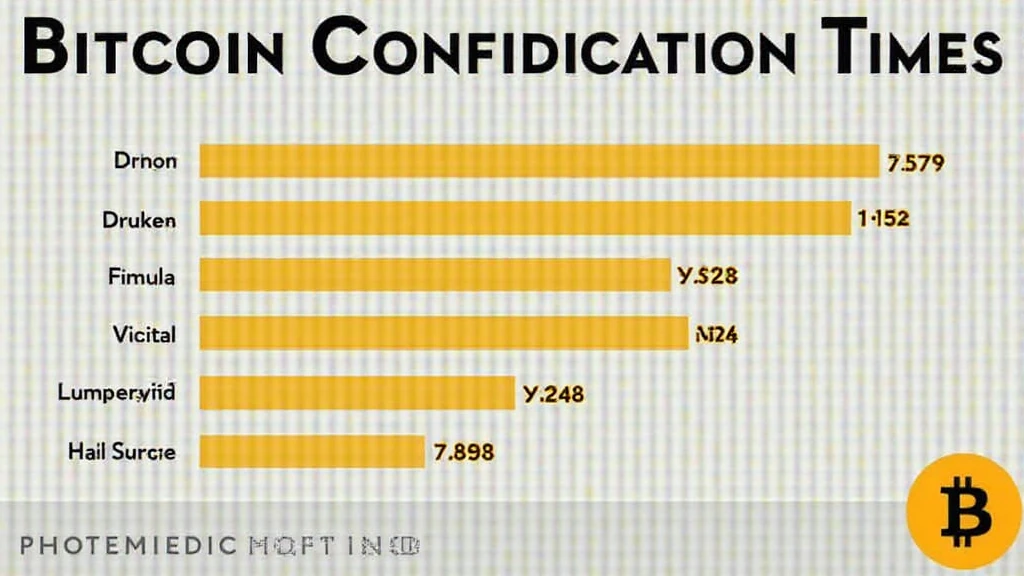Understanding Bitcoin Transaction Confirmation Time
With its rapid rise in adoption and usage, Bitcoin has become a cornerstone of the cryptocurrency market. However, one crucial aspect that often gets overlooked is the Bitcoin transaction confirmation time. It plays a pivotal role in the overall functionality of Bitcoin as a peer-to-peer decentralized currency. In this article, we will delve into the various factors that influence Bitcoin transaction confirmation times, and how these times affect users and businesses alike.
What is Bitcoin Transaction Confirmation Time?
In simple terms, Bitcoin transaction confirmation time refers to the duration it takes for a Bitcoin trade to be verified by miners and included in a block on the Bitcoin blockchain. Once a transaction is validated, it receives a confirmation. Generally, users wait for six confirmations for a transaction to be considered secure.
The average confirmation time can fluctuate depending on several factors. For instance, your transaction might experience delays during peak network usage periods or reduced miner engagement. As the adoption of Bitcoin increases, understanding these timeframes becomes even more critical.

Factors Influencing Bitcoin Transaction Confirmation Time
- Network Congestion: When the Bitcoin network is congested with a high volume of transactions, it can lead to longer confirmation times. During such times, miners prioritize transactions with higher fees.
- Transaction Fees: The fee attached to a transaction can significantly affect its confirmation time. Miners are incentivized to process transactions with higher fees first, resulting in quicker confirmations.
- Block Size Limit: Bitcoin’s block size is capped at 1MB, and each block can contain a limited number of transactions. If transactions exceed this limit, those with lower fees may need to wait longer for confirmation.
- Mining Difficulty: The mining difficulty, which adjusts approximately every two weeks, also impacts how quickly transactions are confirmed. A higher difficulty slows down the rate at which new blocks are created.
The Importance of Transaction Confirmation Times for Users
As Bitcoin gains traction among individuals and businesses, users must comprehend the implications of transaction confirmation times. For example, long confirmation times can pose challenges for merchants utilizing Bitcoin as a payment method, as customers may perceive delays as a lack of trust or efficiency. Let’s break down a few scenarios:
- E-commerce Transactions: In a world where speed matters, a slow confirmation could deter customers from completing their purchases.
- Remittances: Sending Bitcoin internationally can be delayed due to lengthy confirmation times, making it less appealing compared to traditional remittance services.
- Investment Decisions: Investors tracking Bitcoin prices may miss opportunities if they cannot quickly transfer their Bitcoin due to confirmation delays.
Local Insight: Vietnam’s Growth in Bitcoin Adoption
According to recent statistics, Vietnam is witnessing a significant increase in its crypto user base, with a 35% growth rate in the last year alone. The country’s interest in Bitcoin and other cryptocurrencies is rising, with more individuals readily adopting Bitcoin for various uses. However, this increases the demand for faster transaction confirmations.
As Vietnamese entrepreneurs venture into the cryptocurrency ecosystem, transaction confirmation times will increasingly become a topic of interest. Understanding how Bitcoin handles transactions under high demands is essential for these businesses.
How to Improve Bitcoin Transaction Confirmation Times
While users cannot directly influence how quickly their transactions confirm, there are multiple strategies to optimize confirmation time:
- Selecting the Right Fees: Always check recommended transaction fees during peak times to ensure your transaction is prioritized.
- Using SegWit Addresses: Adopting SegWit (Segregated Witness) addresses can reduce transaction size and, consequently, enhance confirmation times.
- Off-Chain Solutions: Utilizing layers like the Lightning Network can provide instant transactions without the need for confirmations on the main blockchain.
The Future of Bitcoin Transaction Confirmation Times
As the cryptocurrency landscape evolves, ensuring Bitcoin remains a viable payment option hinges on addressing transaction speed. Developers are continuously working on improving transaction throughput and scalability. Initiatives like Schnorr signatures, which enhance transaction efficiency, may alter how we perceive confirmation times.
Furthermore, increasing Bitcoin’s addressable market in places like Vietnam will carry unique challenges and opportunities. As the local regulatory environment continues to evolve, it is essential to stay informed about best practices for efficient Bitcoin usage.
Conclusion
Understanding Bitcoin transaction confirmation time is essential for anyone involved in the cryptocurrency space, whether a user or business owner. The unpredictable nature of confirmations could pose significant challenges in practical usage. Therefore, adopting best practices and exploring alternative solutions is paramount.
As Bitcoin continues to grow in popularity, particularly in regions like Vietnam, becoming proficient in the nuances of transaction confirmations will equip users and businesses to navigate this evolving landscape effectively. By staying ahead of the curve, crypto enthusiasts can capitalize on Bitcoin’s potential while mitigating risks associated with transaction delays.
For more information on enhancing your Bitcoin experience, visit hibt.com.
Author: Dr. Nguyen Tran, a cryptocurrency expert with over 40 published papers and has led audits for several blockchain projects.







